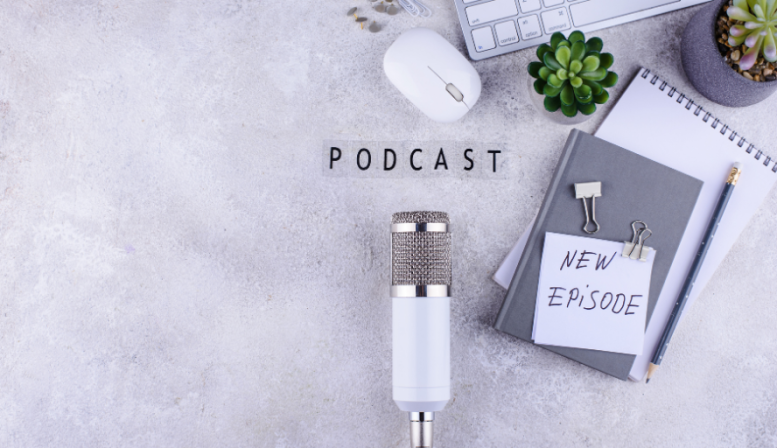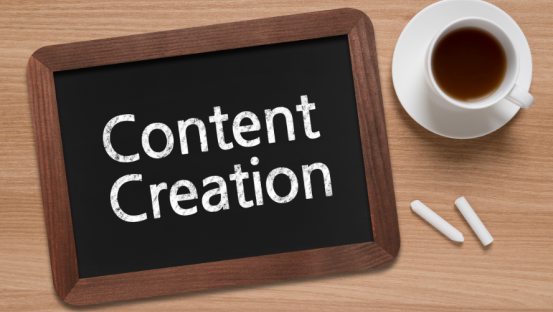Why Podcasts Are Perfect Practice Grounds for Public Speakers

Podcasts can be a super useful tool for public speakers, and for a variety of different reasons. They’re ideal for learning new things and for familiarizing yourself with the latest best practices, and they can also be a useful way to meet new people.
Public speakers also have a natural advantage here because podcasting is all about voice, and that’s what public speakers tend to excel at. Because of that, podcasts and public speakers are a match made in heaven.
Let’s take a closer look at exactly why that is.

1. They force you to focus on verbal cues
Podcasts only use audio, with the possible exception of those which also include podcast notes that people can read during or after listening to the episode. Even then, those written notes are dictated by what you speak about. Because of that, your ability to communicate verbally is the only thing that matters, and podcasts put such an emphasis on speaking that they automatically force you to think about the way that your verbal cues help you to communicate.
2. They help you build your personal brand
Podcasting is the leading form of audio-based content creation, and we all know that creating content is one of the best ways there is for us to build and grow our personal brand. Because of that, podcasting makes a lot of sense for public speakers, because it’s a tool that allows them to share their expertise and grow their brand at the same time. It’s a great way to kill two birds with one stone.
3. They fill out your portfolio
As a public speaker, it’s likely that you’ll need a portfolio to showcase your work and to show people why you might be a good choice for their events. That’s where podcasting comes in. It gives you a playground where you can show off your speaking skills and the knowledge that you have to share, and then you can use the links as proof of your expertise by including them in your portfolio.
4. They’re great for networking
One of the biggest advantages of creating podcasts is that it’s a great way for you to meet new people in your industry. Your goal should always be to find guests that your listeners will find interesting, but there’s usually a lot of crossover there between who your listeners will enjoy and who you can benefit from forging connections with. You might be surprised by how many business relationships have started out with a podcast.
5. You can do it from home
Podcasting is great because it’s one of the few forms of public speaking that you can do from home. This is ideal if you live outside the United States, where many of the biggest public speaking opportunities are available, and it’s also great when something like COVID comes along and you’re suddenly unable to travel. You can travel the world virtually instead, with no need to ever leave your living room.
6. You’ll receive feedback from listeners
Another major advantage of recording podcasts is that it will expose you to listeners who can give you feedback whenever a new episode is uploaded. This valuable feedback could cover the content of your presentations, the way you deliver them, or both. It’s not quite as real-time as you can expect from speaking at conferences or events, but it’s still a great way to learn and improve over time.
7. You can try out new topics and concepts
Podcasts are like a testing ground for your ideas. You can do all the research ahead of time, figure out what your talking points are, and then go over it in the podcast. If it works well, you’ll know that you could potentially give a talk on the subject at an in-person event. If it doesn’t, you can go back to the drawing board and pick something else to cover.
8. You can listen back to find ways to improve
No one likes listening to the sound of their own voice, although most of us eventually come to terms with it after we’ve been exposed enough. Podcasting will quickly get you used to listening back to yourself, and before long you’ll be identifying changes you can make to the way that you speak and present information so that you can get better at what you do and become the public speaker you’ve always wanted to be.
9. They fill out the off-season
We can’t be at events all the time, and so podcasting can be a productive way for you to stay busy when there’s nothing in your calendar. Podcasting also has the benefit of allowing you to pre-record episodes in advance, and so you can record a bunch of episodes in the off season and then trickle them out over time when you’re busy at events.
10. You can hit people with a call-to-action
Calls-to-action are a trick that we steal from the marketing industry, and the idea is to tell people what action you want them to take next. Podcasts are great for this, because you can entertain or educate people for an hour or so and then tell them what you want them to do next. This might be to book tickets to see you at one of your events, or it might be to sign up to your mailing list or to buy your book.
Conclusion
Now that you know our thoughts on why podcasts are the perfect practice grounds for public speakers, we want to hear from you. Have you had any success at using podcasts to boost your public speaking brand?
As always, we’d love it if you could share your thoughts in the comments so that we can keep the discussion going. You can also follow us on your favorite social networking sites for more. We’ll see you soon for another article!




